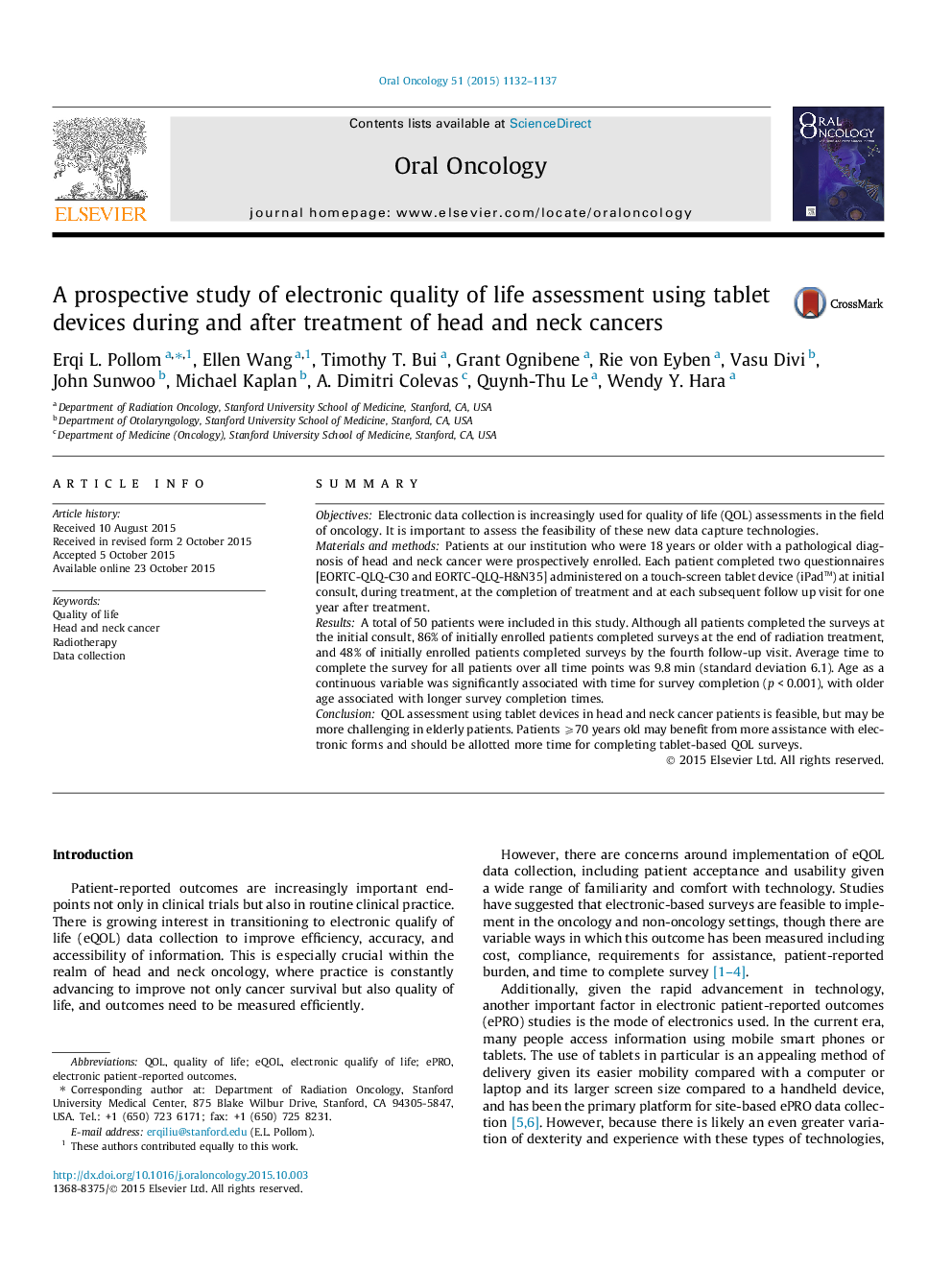| Article ID | Journal | Published Year | Pages | File Type |
|---|---|---|---|---|
| 3163842 | Oral Oncology | 2015 | 6 Pages |
•Quality of life was assessed with a tablet device in head and neck cancer patients.•Electronic surveys were completed before, during, and after radiation therapy.•We report high compliance rates and reasonable survey completion times.•Older patients required more time to complete the survey.
SummaryObjectivesElectronic data collection is increasingly used for quality of life (QOL) assessments in the field of oncology. It is important to assess the feasibility of these new data capture technologies.Materials and methodsPatients at our institution who were 18 years or older with a pathological diagnosis of head and neck cancer were prospectively enrolled. Each patient completed two questionnaires [EORTC-QLQ-C30 and EORTC-QLQ-H&N35] administered on a touch-screen tablet device (iPad™) at initial consult, during treatment, at the completion of treatment and at each subsequent follow up visit for one year after treatment.ResultsA total of 50 patients were included in this study. Although all patients completed the surveys at the initial consult, 86% of initially enrolled patients completed surveys at the end of radiation treatment, and 48% of initially enrolled patients completed surveys by the fourth follow-up visit. Average time to complete the survey for all patients over all time points was 9.8 min (standard deviation 6.1). Age as a continuous variable was significantly associated with time for survey completion (p < 0.001), with older age associated with longer survey completion times.ConclusionQOL assessment using tablet devices in head and neck cancer patients is feasible, but may be more challenging in elderly patients. Patients ⩾70 years old may benefit from more assistance with electronic forms and should be allotted more time for completing tablet-based QOL surveys.
